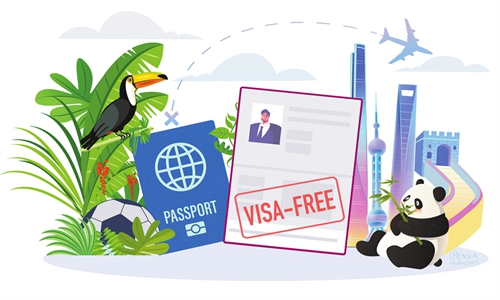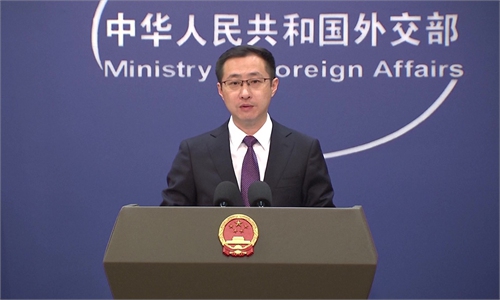European travel industry urges EU to ease entry rules for Chinese tourists: media report

People watch a concert during a Europe Day celebration event in Narva, Estonia, May 9, 2025. (Photo: Xinhua)
Head of the European Travel Agents' and Tour Operators' Associations (ECTAA) Frank Oostdam has called on the European Union to ease entry requirements for Chinese travelers, following China's expansion of visa-free access to more than 30 European countries, news portal Macaubusiness.com reported on Wednesday.
Oostdam was speaking in Macao, where the ECTAA is hosting its annual summit, when asked about the European response to China's visa exemption policy, the Alliance of Mediterranean News Agencies reported on Wednesday.
He called on the EU to make it easier for Chinese nationals to enter the EU, "We will continue to knock on the European Commission's door to lower the threshold for visitors from outside Europe," said the president of ECTAA, according to the report.
"We are very much in favor of freedom of movement, because if people get to know each other, we will have a better world," argued the ECTAA president.
Asked about potential reciprocity from European countries to allow Chinese travelers easier access to Europe, Oostdam said that promoting greater borderless travel and reducing burdens on people is one of the ECTAA's goals, according to the Macau Daily Times on Wednesday.
Wang Peng, an associate research fellow at the Beijing Academy of Social Sciences, told the Global Times on Wednesday that as China is one of the world's largest outbound tourism markets, so relaxing entry rules could stimulate recovery in European sectors such as tourism and retail.
Wang said that it is crucial to streamline Schengen visa procedures, such as introducing electronic visas and shortening processing times, while also stressing the need to balance security controls in visa application process.
As other countries have already eased restrictions on Chinese tourists, the EU is urged to follow suit to avoid risking losing Chinese tourists, the expert noted.
A Shenzhen-based travel agency, Huba Travel Service, told the Global Times on Wednesday that they handle approximately 100 bookings for European trips each month, with France, Germany, Italy and Switzerland being the top destinations for Chinese tourists. Spain and Portugal have also gained popularity over the past few years, the agency said.
Younger travelers in their 20s are inquiring about trips to Central and Eastern European destinations like Budapest and Prague, attracted by the cost-effectiveness of these regions, where a 10-day trip costs around 15,000 yuan ($2,086) per person, the agency added.
Ahead of the press conference, Pedro Costa Ferreira, president of the Portuguese Association of Travel and Tourism Agencies (APAVT), expressed regret that "there is no equivalent solution from Europe for Chinese tourists," per Macau business.com.
"We would very much like to see it happen - that is ECTAA's view, and it is also APAVT's position. Visas hinder mobility, and mobility benefits the world," said the president.
A Beijing-based resident surnamed Liao told the Global Times that southern European cities had always been on her must-visit list, but she had put off the trip due to the cumbersome visa application process. "For popular destinations like Spain and Italy, securing a visa appointment requires waiting over a month. In Beijing, the waiting time can be even longer," she said.
Although she understands the visa process is due to security and other concerns, Liao said the documents required and the procedures involved are quite demanding, saying she hopes the process will be simplified in the future.
Aside from visa facilitation, the expert also noted that key issues to promote China-EU tourism include flight connectivity, payment systems, cultural differences, safety and emergency protocols, market promotion and sustainable development.
In culture and services, Wang said that European countries are encouraged to enhance Chinese-language support such as multilingual guided tours and menus while Chinese tourists should familiarize themselves with European customs in advance.
Regarding market promotion, China and the EU countries could jointly highlight Europe's lesser-known destinations and develop specialized tourism products, such as cultural experiences, he added.


